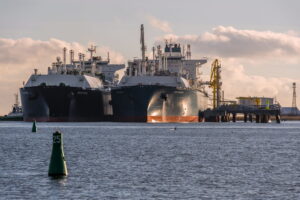– Even if not competitive on price, US LNG seems to have already had some positive impact in Europe in terms of introducing more competition and another source of gas – says professor Susan Sakmar from the University of Houston in an interview for BiznesAlert.pl, lawyer and author of a book about the LNG market „Energy for the 21st Century: Opportunities and Challenges for LNG”.
BiznesAlert.pl: In March, energy secretary Rick Perry said energy would be the primary export commodity in the coming years. Recently, the US has been a net exporter of liquefied natural gas (LNG), but according to Perry, the full use of the benefits of American surplus energy will require investment in new pipelines, railways and ports. Do you think that the shale revolution will allow the US in the long run to become a real threat to the oil empire of Saudi Arabia and gas from Russia?
Susan Sakmar: It is important to keep in mind that US LNG exports have only just begun. Cheniere began exports in Feb. 2016 and is just now starting exports to Gail India with Train 4. Cheniere is still building Train 5. Cove Point LNG is the second US project to come online. Three more projects will come online in the next few years. As US LNG exports ramp up, the consensus view is that more pipeline capacity out of shale plays, and especially the Permian Basin, are needed to bring natural gas to exporters. The focus of Perry and the Trump administration in general seems to be on building out more pipelines to ensure oil and gas gets to the areas where export projects are being built.
Shale oil and gas production in America has continued to surprise me, although there are some headwinds as producers struggle to actually make money in a low price environment. In the long run, this could impact American production and in turn exports. The consensus view in America is that there is so much oil and gas that so long as the right price signal is there, production will keep pace and even exceed demand, which paves the way for more exports. I think US oil and gas exports are more likely to offer optionality and help US allies diversify away from Saudi Arabia and Russia, as opposed to being a real threat to taking market share. US LNG exports to Europe have already had an impact in terms of offering competition to Russia, which in turn allowed some countries to negotiate better terms with Russia. Whether US LNG could actually take a lot of market share from Russia remains to be seen and certainly the geopolitics in terms of increased US sanctions on Russia could also impact the energy dynamics.
The Polish company PGNiG signed a medium-term contract for the supply of LNG with Sabine Pass last year through the British company Centrica, which already had the bocked capacity of the facility. The Polish government says that the price of LNG supplies from the USA under this agreement is competitive to stock exchanges in Europe. Do you think that this is possible?
US LNG from the first wave of US projects (Cheniere, Cove Point, Freeport etc) is generally based on Henry Hub + 15% + liquefaction fee + shipping. Shipping LNG around the world is still a relatively expensive form of energy and I would think US LNG would not likely be price competitive to Russian pipeline gas, but I would need to know about Russia’s prices to say for sure. Even if not competitive on price, US LNG seems to have already had some positive impact in Europe in terms of introducing more competition and another source of gas.
US President Donald Trump wants to export energy and liberalize exports, while decisions regarding the ban on oil exports and the abolition of barriers for LNG exports to countries that do not have a free trade agreement (FTA) had been made by Barack Obama. What decisions on the liberalization of LNG and oil exports have been introduced by the Trump administration or what are its plans?
The US LNG export projects that are just now coming online were approved by President Obama. President Trump seems to be continuing the US policy in favor of exports and has sometimes been criticized for appearing to take credit for exports. Regardless, the Trump Administration has clearly signaled they are in favor of exports and also in favor of more infrastructure to facilitate exports. The main infrastructure focus seems to be on pipelines since the US already has 5-6 major LNG export projects operating or under construction. To my knowledge, there are no actions being taken to specifically liberalize exports by the Trump administration. The Senate has proposed a bill to eliminate the FTA-non-FTA distinction which could speed up the DOE approval process, but this does not seem to be a big focus at the moment.
Interview conducted by Bartłomiej Sawicki








